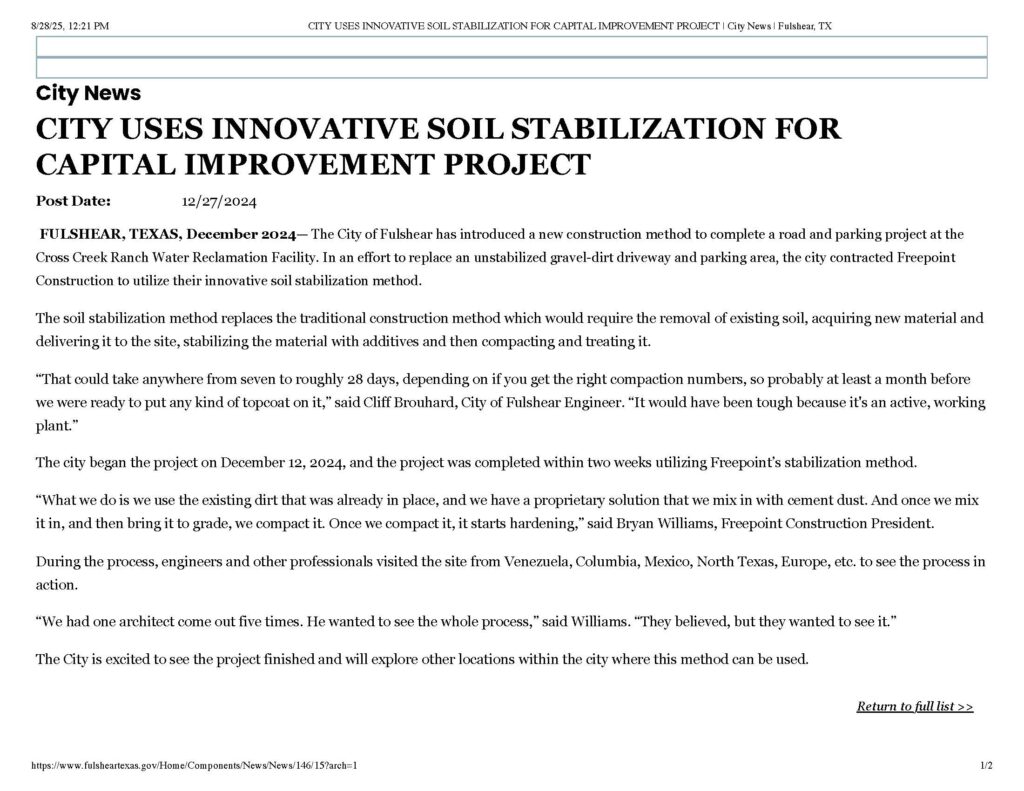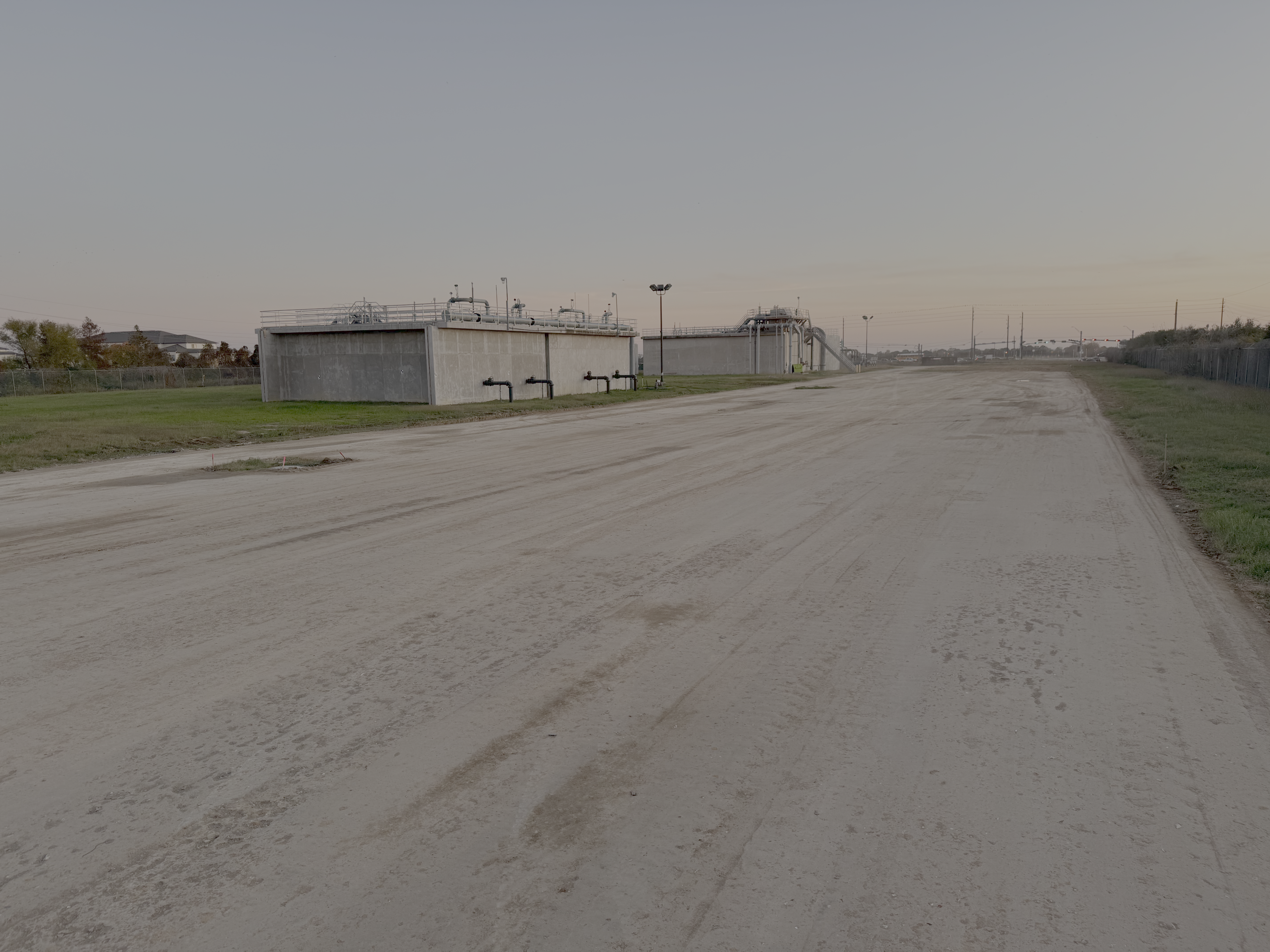When the City of Fulshear needed to convert an old construction material dump site at their wastewater treatment plant into a functional parking and laydown yard, they faced a complex puzzle that had them searching for solutions for years. The project presented multiple critical obstacles:
Operational Constraints: The site sat within the secure perimeter of an active wastewater treatment plant serving a major master-planned development, where any disruption to operations could impact thousands of residents.
Infrastructure Crisis: The only access road—a 15-year-old gravel path filled with large holes and deteriorated to mostly dirt and mud—was the same route that needed to be converted to gain access to the new parking area. This created a catch-22: how do you improve access while simultaneously removing the access route?
Soil Complications: Years of use as a construction dump site had created a geological nightmare. The subsurface contained a mix of fat clay, sand, loamy clay, black topsoil, and gravel—traditional construction methods required removing and replacing with thousand of cubic yards of select fill
Budget and Timeline Pressures: Traditional excavation and replacement methods would require months of complete access shutdown and would exceed the city’s project budget by 300-500%—making the conventional approach both financially and operationally impossible.
The Freepoint Solution
Where others saw insurmountable obstacles, Freepoint Construction saw an opportunity to demonstrate the power of liquid chemical soil stabilization. Our approach eliminated the need for excavation, material removal, and lengthy construction timelines.
Rapid Deployment: Freepoint mobilized mid-week and began construction Thursday morning, working with precision around the plant’s critical operations schedule.
In-Place Stabilization: Rather than excavating the problematic mixed soils, our liquid chemical stabilization process transformed the existing materials into a stable, load-bearing foundation—turning the site’s biggest liability into its greatest asset.
Zero Downtime: While traditional methods would have shut down plant access for nearly three months, our process maintained continuous access to all critical wastewater treatment operations.
Exceptional Results
48-Hour Turnaround: By Saturday—just 48 hours after breaking ground—both the access road and entire parking area were fully stabilized and ready for Class 8 traffic and heavy equipment operations.
Complete Project Delivery: Final surfacing and project turnover were completed within 10 days, compared to the 10-12 weeks required by conventional methods.
Budget Success: The city achieved their infrastructure goals while staying within their original budget parameters, avoiding the 300-500% cost overrun that traditional methods would have required.
Operational Excellence: Zero interruption to the wastewater treatment plant’s critical operations throughout the entire construction process.
Why This Project Matters
The City of Fulshear project perfectly illustrates how Freepoint Construction’s soil stabilization expertise can transform seemingly impossible challenges into remarkable successes. When budget constraints, operational requirements, and complex soil conditions align against traditional construction methods, our innovative approach delivers solutions that work for both the project and the client.
Ready to see how Freepoint Construction can solve your soil stabilization challenges? Contact us today to discuss your project’s unique requirements.



Comments are closed